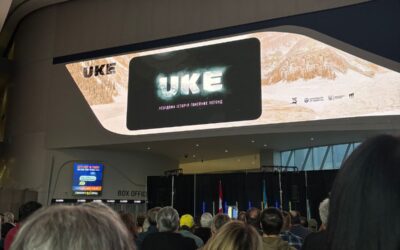The March 8th NAITSA Senate meeting was lively, with an intense debate about the new mandatory non-instructional fee (MNIF).
After the call to order and the land acknowledgment, the new Executive Council Elects were welcomed for next year. Vice-President Internal Elect Travis Luscombe and VP Academic Elect Marina Bruno were newly elected for the next year. Current NAITSA Senator Jenna Williams was congratulated for her new position as Vice-President External Elect. Current Acting President and VP Internal, Tyleen Saison, was congratulated on her President role next year.
Senator Harder-Tessier was eager to discuss the recent MNIF; it was immediately added to the Agenda.
VP Academic Renata Medeiros and Board of Governors’ Leshan Masikonte gave a presentation about the Board of Governors. The position’s main role is to advocate for students in the long term on behalf of NAIT.
Medeiros took over the presentation to talk more about the position. All meetings are in person and follow Robert’s Rules of Order. There is one monthly meeting, each about four hours long, and they provide dinner for the student members. Medieros mentioned that sometimes dinner will be the best part of it. She continued with the perks of the position, highlighting that it looks great on a resume, is an opportunity to network with people across Canada, and that NAIT pays tuition (though the student will still have to pay some fees.)
Senator Ashmeet Gill asked about the MNIF. Saison answered, explaining it was to improve many things the students would want. The MNIF was a key concern to many senators tonight. This item would be debated later in the meeting.
Senator Harder-Tessier asked about the satellite campuses and how to improve communication. Saison mentioned the EC knows students at the satellite campuses feel left out and overlooked. The EC is reaching out to those instructors and students on how to improve satellite campuses for the students.
Getting to the MINFs, Harder-Tessier kicked off the debate by reminding the Senate and Executive Council that they had heard about it at the beginning of the year and that the Senate would get more information about it. The Senator did not get any of this information and the email he received mere hours ago surprised him.
Another Senator asked if this was out of NAITSA’s hands. Medeiros explained how the Post-Secondary Learning Act requires NAITSA to provide written approval of a new MNIF, which it did. Medeiros explained the difference between a plebiscite and a referendum. A plebiscite is a non-binding vote, while a referendum is a binding vote. It is more of an official survey to gather information. “The EC only does a plebiscite if they believe the changes are wanted and not needed,” she said. Continuing on, Merdeiros explained the MNIF funds would go to improving the wifi, among getting better loanable technology, as the current items they have are getting old and outdated.
Saison added that they were considering a plebiscite. “It was a hard decision for the team but needed to be done quickly,” she said.
Harder-Tessier began pushing against the decision to not have a plebiscite at this point compared to the 2022 election. Merdiros stated NAIT gave them more time in the previous plebiscite.
Saison added that many students have complained about the Wi-Fi. With more classes going virtual, some students will have a virtual class right after a live class, so having a stable Wi-Ficonnection is crucial. The EC believes this MNIF was needed; they did not want to have to do it.
VP External Jody Gylander discussed NAIT’s funding crunch. Services would have to be cut, and the EC did not want to do that. Gylander regrets not informing the Senate more; it was a hard decision. Continuing, he reinforces that due diligence was done, and they did not want to but felt they had to. The EC stands by their decision to approve the MNIF as they know it will help students in the future and prevent Nait from cutting much-needed services.
Executive Director Chris Chelmick informs the Senate, “We have deflected $500-600 of MNIFs in the past few years. We allowed a trickle of approvals vs what NAIT wants.”After that lengthy debate, the meeting got to the next topic of discussion. The Alberta Students’ Executive Council (ASEC). ASEC is a student advocacy group representing the interests of 110 000 students. Gylander believes due to some leadership movement of the council, it has become ineffective and highly dysfunctional. In the past, it was great as it fought for students against the government, but it cost NAITSA $67 000 annually. This two-year process will take two rotations of ECs to complete; the current EC would like to start the process so future EC’s can control the narrative. This motion passed unanimously.






